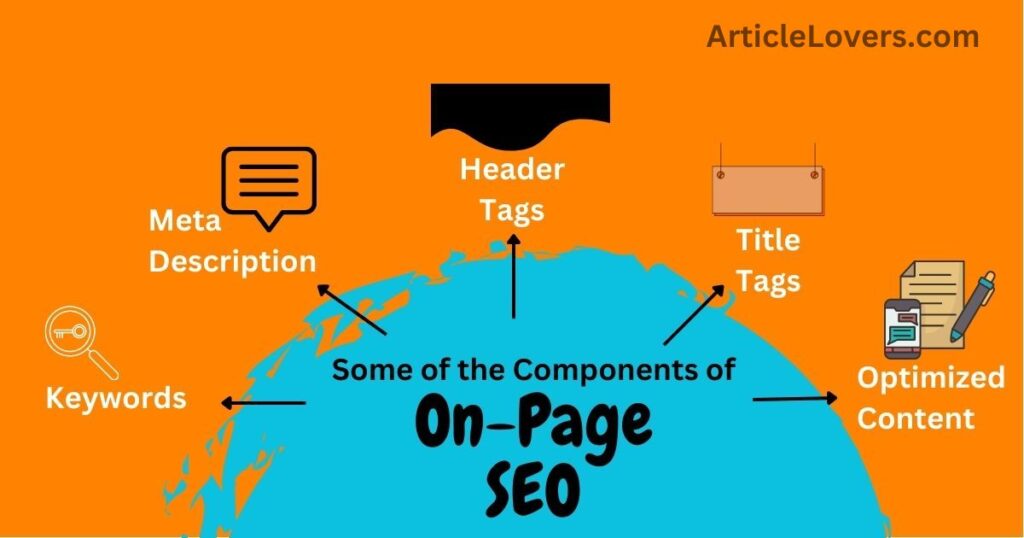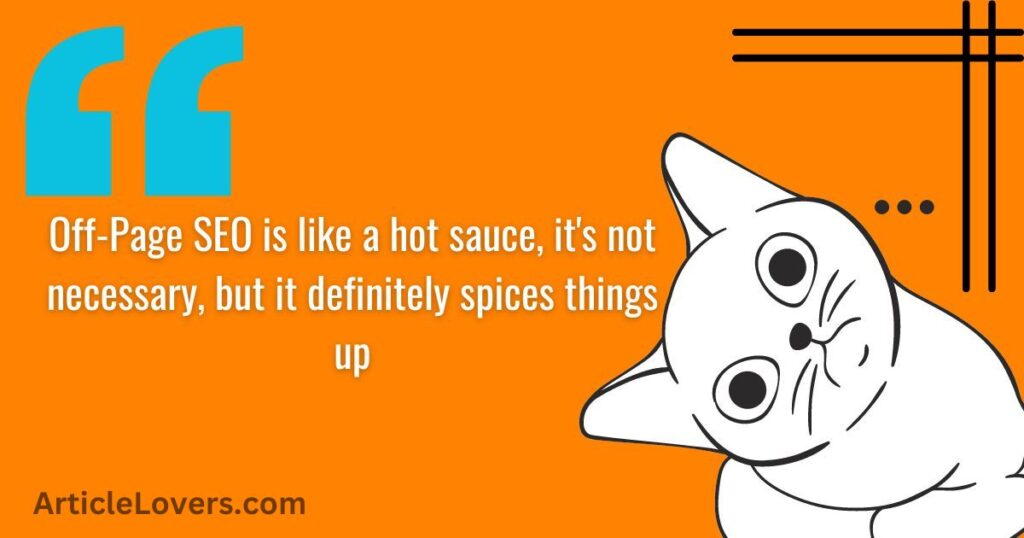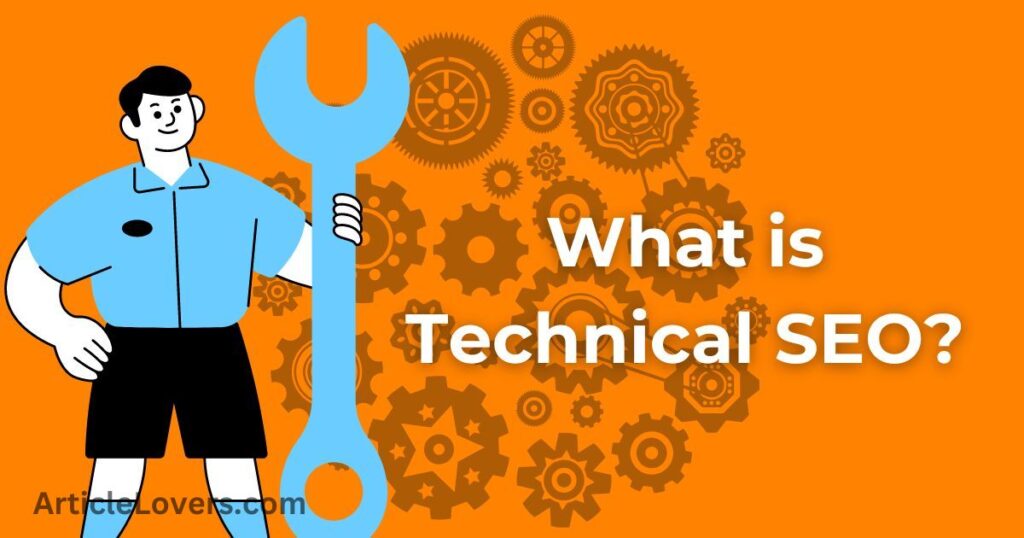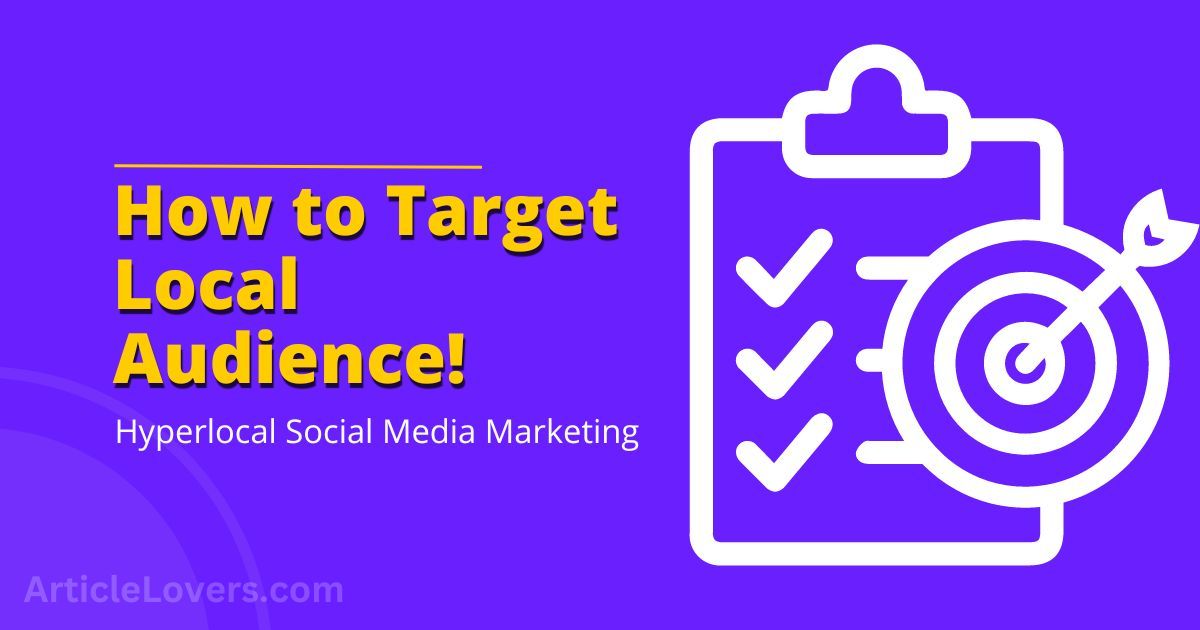Search Engine Optimization is an ongoing process that you have to keep doing and monitoring even if you are ranked 1 on Google. Any rank on SERP is not reserved for anyone, so you cannot ignore SEO even if you are in the top 10 or even at rank 1 on Google for a certain keyword.
Table of Contents
Welcome to the magical world of SEO, where we remove the doubts and some fun into the mix. Today, we’re going on an adventure to learn about what is SEO, On-Page, Off-Page, and Technical SEO. Picture On-Page SEO as the master of words, crafting engaging content and strategically placing keywords like hidden treasures. Technical SEO, on the other hand, is the tech wizard who ensures your website performs like a well-oiled machine, leaving cheetahs in the dust.
And let’s not forget Off-Page SEO, the social butterfly that spreads its wings to build connections and earn valuable backlinks. So buckle up, leave confusion at the door, and join us on this exciting journey through the enchanted world of SEO. Get ready to learn, laugh, and level up your digital game!
What is Search Engine Optimization?
What is SEO, you ask? Well, imagine you’re throwing a party, but not just any party – the party of the century! You want everyone to show up, right? SEO is like sending out invitations to all the search engines out there, making sure they know your website is the hottest spot in town.
It’s like putting on your best outfit and styling your hair perfectly, but instead of impressing people, you’re wowing those sneaky algorithms that decide who gets to be at the top of the search results.
It’s like being the life of the digital party, where keywords are the secret password and backlinks are your VIP connections. So, get ready to rock the search engine dance floor and make your website the ultimate party destination!
Keyword Research in SEO
Keyword research in SEO, the Sherlock Holmes of the digital world! It’s like diving into the vast ocean of words, equipped with your trusty snorkel and a sense of adventure. You’re on a mission to uncover the hidden treasures that will make your website rise to the top of search engine rankings. In order to understand what is SEO you are required to know about keywords and keywords research.
Think of it as being a language detective, deciphering the secret codes people use when they type their queries into search engines. You’re like a linguistic spy, peeking into the minds of your target audience and finding out what makes them tick. It’s like eavesdropping on their conversations and discovering the magic words that will make your website the talk of the town.
You sift through mountains of data, analyzing trends and patterns like a master puzzle solver. You’re on a quest to find the perfect keywords that strike the balance between popularity and uniqueness. It’s like searching for a needle in a haystack, but instead of a needle, you’re after that golden keyword that will attract hordes of eager visitors to your digital doorstep.
But remember, it’s not just about stuffing your content with keywords like a turkey on Thanksgiving. It’s about sprinkling them strategically, like fairy dust, throughout your website, creating a harmonious symphony of relevance that search engines can’t resist.
So, put on your detective hat, sharpen your wit, and embark on the thrilling adventure of keyword research. Unleash your inner wordsmith and watch as your website climbs the ladder of search engine success. Happy keyword hunting, my fellow language detectives!
What is a Keyword?
To be precise, when you are looking for information or content on the internet, you enter certain words or phrases that you want to search about, these words and phrases are known as keywords.
The keyword is the unsung hero of the search engine realm! A keyword is like a secret handshake between your website and search engines. It’s a word or a phrase that captures the essence of what people are searching for. It’s like a magical key that unlocks the digital doors and guides users straight to your doorstep.
It’s the language of the internet, the breadcrumbs that lead search engines to your content. So, think of keywords as your website’s best friends, the bridge that connects your brilliance with the curious minds of the online world. Embrace the power of keywords and watch as your website rises to the top like a superstar in the search engine stage!
How do Keywords work?
- When you enter a query into a search engine, like a magic spell, it sets off a series of events. The search engine, armed with its powerful algorithms, scans through billions of web pages in its enchanted index to find the most relevant ones.
- But how does it know which pages are the most relevant? That’s where keywords are used. They’re like beacons of relevance, guiding the search engine to the most appropriate content. When you optimize your website with relevant keywords, you’re essentially giving search engines clues about your content’s topic.
- Search engine bots and spiders crawl through your web pages, examining every detail, from the page title to the headings, the body text to the meta tags. They’re on a mission to decipher your content’s meaning and match it to the user’s query.
- The goal is to find a harmonious match between the user’s search intent and the keywords you’ve strategically placed. When the search engine sees that your web page aligns perfectly with what the user is searching for, it rewards you with a higher ranking in the search results.
- So, think of keywords as the secret language that connects search engines and your content. By understanding how keywords work, you can enchant the search engines and attract more visitors to your digital realm. Choose your keywords wisely, weave them into your content like a master storyteller, and watch as the magic unfolds in the form of increased visibility and website traffic!
Types of Search Engine Optimization
To fully understand what is SEO we need to know in-depth about the different types of SEO, SEO is a powerful tool that helps websites climb the ranks of search engine results and attract more organic traffic. But did you know that SEO comes in different flavors? Yes, indeed! Let’s embark on a journey to explore the different types of SEO.
First up, we have On-Page SEO, the superstar of website optimization. It’s all about fine-tuning your web pages with keyword-rich content, captivating meta tags, and well-structured URLs. On-Page SEO ensures that search engines understand and love your website’s individual pages.
Next, we have Off-Page SEO, the social butterfly of the SEO family. It’s all about building connections and credibility beyond your website. Think backlinks, social media shares, and online mentions. Off-Page SEO tells search engines that your website is the cool kid on the block, worthy of attention.
Last but not least, we have Technical SEO, the wizard behind the curtain. It focuses on the technical aspects that make your website crawlable and indexable by search engines. From site speed optimization to mobile-friendliness, Technical SEO ensures that your website is a smooth operator in the eyes of search engines.
Now that we’ve scratched the surface of the different types of SEO, get ready to dive deeper into each one. Understanding and implementing these SEO tactics will unlock the full potential of your website, boost its visibility, and bring a flood of eager visitors to your digital doorstep. So, buckle up and join us on this exhilarating SEO adventure!
On-page Search Engine Optimization

On-page SEO is the most important factor for ranking your website.
You can control almost 100% of the elements of on-page SEO. You cannot ignore on-page SEO.
If you have a new website and you are just overwhelmed by the factors of on-page SEO and you are wondering where to start your on-page SEO activities then here is a thing for you.
There are two factors in on-page SEO:
- One-time setup: One which we do for one time and it has effects for a long period and you don’t have to repeat those activities. Such as HTTPS, SSL certificates, and Redirects.
- Once-in-a-while setup: The other are those which you have to repeat the time you add some article or webpage to your website. Such as Titles, descriptions, and headings.
Do you know?
There are almost 200 factors according to Google which affect your website ranking directly or indirectly.
Some important factors of the On-Page SEO Factors –
Keyword Optimization
Conduct thorough keyword research and strategically incorporate relevant keywords into your page’s content, headings, meta tags, and URLs.
Quality Content
Create high-quality, informative, and engaging content that is valuable to your target audience. Ensure your content is well-structured, easy to read, and provides relevant answers to user queries.
Meta Tags
Optimize your meta tags, including the meta title and meta description, with concise and compelling information that accurately represents the page’s content.
Heading Tags
Use heading tags (H1, H2, etc.) to organize your content and highlight important sections. Include relevant keywords in your headings to signal the page’s main topics to search engines.
Internal Linking
Link relevant pages within your website to improve navigation and help search engines understand the relationships between different pages.
Image Optimization
Optimize your images by using descriptive file names, alt tags, and compressing them for faster loading times. This helps search engines understand the content and context of your images.
Mobile-Friendliness
Ensure your website and web pages are optimized for mobile devices, providing a seamless and user-friendly experience across different screen sizes.
Page Loading Speed
Optimize your page’s loading speed by minimizing file sizes, enabling caching, and utilizing efficient coding practices. Faster-loading pages improve user experience and search engine rankings.
User Experience
Prioritize a positive user experience by ensuring easy navigation, intuitive design, and fast-loading pages. User-friendly websites are more likely to rank higher in search results.
Off-Page Search Engine Optimization

While On-Page SEO takes care of the magic happening on your website, Off-Page SEO is all about making connections and spreading the word about your fabulous online presence.
Imagine your website is throwing a grand party, and Off-Page SEO is like the cool guest who brings in a whole entourage. It’s all about building relationships and gaining popularity beyond your own digital walls.
One way to make a splash in the Off-Page SEO scene is through backlinks. These little endorsements from other websites are like virtual high-fives, telling search engines that your website is worth checking out. It’s like having a group of friends saying, “Hey, this website rocks!”
But wait, there’s more! Social media shares are like the ultimate party invites. When your content gets shared across social platforms, it’s like your website is the talk of the town. Think of it as your website being the center of attention at every digital cocktail party.
And let’s not forget about online mentions. When others talk about your website in blog posts, articles, or even online forums, it’s like your website becomes a hot topic in digital conversations. It’s like being the main character in a juicy gossip story but in a good way!
So, Off-Page SEO is all about expanding your digital network, making friends with other websites, and becoming the talk of the online town. It’s like throwing the wildest party ever and having everyone wanting to be a part of it. So, get out there, make some digital buddies, and watch as your website becomes the life of the SEO party! Cheers to Off-Page SEO success!
Some important elements of Off-Page SEO
Backlink Building
These are like high-fives from other websites, signaling to search engines that your website is reputable. The more quality backlinks you have, the more popular you become in the digital world.
Social Media Marketing
Engage with your audience, share compelling content, and encourage social shares. The more your website gets talked about and shared, the higher the chances of attracting more visitors.
Influencer Marketing
Collaborating with influential personalities in your niche can amplify your reach. They can endorse your website, share your content, and introduce you to their loyal followers.
Guest Posting and Guest Blogging
Become the life of the blogging community by contributing high-quality content to other websites. It’s like being a guest at someone else’s party and leaving your mark with a dazzling performance.
Online Directory Submissions
Listing your website in relevant directories can help improve your online presence and make it easier for users to discover your website.
Forums and Communities
Engage with online communities and forums related to your industry. Answer questions, share valuable insights, and establish yourself as an expert. It’s like being the go-to person at a party for advice and interesting conversations.
PR and Media Coverage
Being featured in news articles, interviews, or industry publications can significantly boost your website’s visibility and reputation. It’s like having paparazzi capturing your every move at the party.
Local SEO
If you have a physical presence or target a specific location, optimizing for local search is crucial. It involves getting listed in local directories, gaining positive reviews, and appearing in location-based search results.
To be noted….
Remember, Off-Page SEO is all about expanding your digital presence, building relationships, and creating a buzz around your website. So, grab your virtual cocktail, mingle with other websites, and make sure your website is the life of the SEO!
Technical Search Engine Optimization

Technical SEO is the behind-the-scenes magic that keeps your website running smoothly in the digital world. It’s the secret sauce that ensures search engines can effectively navigate and understand your site, increasing your online visibility.
Imagine Technical SEO as the architect of your website. It focuses on the technical aspects, optimizing things like site speed, mobile-friendliness, and proper indexing. It’s the equivalent of having a website that loads faster than a caffeine-fueled cheetah and looks great on any device, be it a smartphone, tablet, or even a smart toaster.
With Technical SEO, search engine bots can explore your site like intrepid adventurers, thanks to well-structured XML sitemaps, robot.txt files, and cleverly placed canonical tags. It’s like providing a detailed map and clear directions for search engines to navigate through your digital wonderland.
But there’s more! Technical SEO also loves to sprinkle structured data markup on your website, adding extra information for search engines to feast on. It’s like giving them a VIP backstage pass to your content, making it easier for them to serve up relevant snippets in search results.
So, while Technical SEO may not be the show’s main attraction, it is critical to optimizing your website’s performance and help you climb the search engine rankings. Embrace the technical wizardry and let your website shine bright in the digital spotlight. Let’s celebrate the magic of Technical SEO!
Some important elements of Technical SEO
When it comes to Technical SEO, there are several important elements that play a crucial role in optimizing your website’s performance and search engine visibility. Here are a few key elements to consider:
Website Speed
Ensuring your website loads faster than a caffeinated cheetah is essential. Optimize images, minimize code, and leverage caching techniques to improve loading times.
Mobile-Friendliness
With the world going mobile, make sure your website is responsive and user-friendly on various devices. Google loves mobile-friendly sites, and so do users.
Indexing and Crawling
Help search engine bots explore and understand your website effectively. Use XML sitemaps, robot.txt files, and canonical tags to guide them through your digital maze.
URL Structure
Keep your URLs simple, descriptive, and search engine friendly. Avoid lengthy URLs with unnecessary parameters or gibberish.
Site Architecture
Organize your website in a logical and hierarchical manner, making it easy for both users and search engines to navigate.
Schema Markup
Implement structured data markup to provide search engines with additional context about your content. It helps them display rich snippets in search results, grabbing users’ attention.
HTTPS and Security
Secure your website with HTTPS encryption to protect user data and earn trust from both search engines and visitors.
Website Structure and Navigation
Ensure clear and intuitive navigation, making it easy for users to find what they’re looking for. Optimize internal linking to establish a logical flow throughout your site.
Importance of SEO for websites
- Increased Traffic: One of the primary goals of SEO is to increase the quantity and quality of website traffic. By optimizing your website for relevant keywords and phrases, you can attract more targeted traffic to your website and increase the chances of converting that traffic into leads or customers.
- User Experience: SEO isn’t only about the optimization of websites for search engines but also for the users by optimizing the webpages of the website and other components of the website such as the website’s structure, content, navigation bar, etc.
- Improved Brand Image and Credibility: Ranking high on search engine results pages can increase the credibility and exposure of your brand. Users are more likely to view your brand as an authority in your industry when they see your website at the top of search results.
- Long-term Benefits: Opposite to paid advertising, which requires continued expenditure to maintain results, SEO can provide lasting advantages. By investing in SEO, you can lay a solid foundation for the visibility and rankings of your website, which will eventually pay off.
- Advantage over Competition: SEO is a highly competitive field, but by investing, you can outperform your rivals. Your business can grow if you appear higher in search results, which will also increase traffic and leads.
Frequently Asked Questions
What are some common SEO mistakes to avoid?
Keyword Stuffing, Neglecting Mobile Optimization, Ignoring On-Page Optimization, Lack of Quality Content, Neglecting Technical SEO, Ignoring User Experience.
How is On-Page SEO different from Technical SEO?
While On-Page SEO primarily focuses on content optimization and user experience, Technical SEO concentrates on the technical infrastructure of the website. Both aspects are important for a comprehensive SEO strategy, working together to improve search engine rankings and enhance the overall performance of the website.
How does Off-Page SEO contribute to higher search engine rankings?
Backlinks indicate to search engines that the website is trustworthy, relevant, and valuable, leading to improved visibility and higher rankings in search engine results.
How does On-Page SEO impact search engine rankings?
By implementing On-Page SEO best practices, websites can improve their visibility and rankings in search engine results, attract organic traffic, and enhance user engagement.
Are there any SEO tools available to assist with On-Page, Off-Page, and Technical SEO?
Some popular SEO tools that can assist with On-Page, Off-Page, and Technical SEO include Google Analytics, Google Search Console, SEMrush, Moz, Ahrefs, Yoast SEO, Screaming Frog, Majestic SEO, SEOptimer, Ubersuggest.
Thanks for visiting ArticleLovers. Make sure to follow this blog to get more interesting topics like this!





